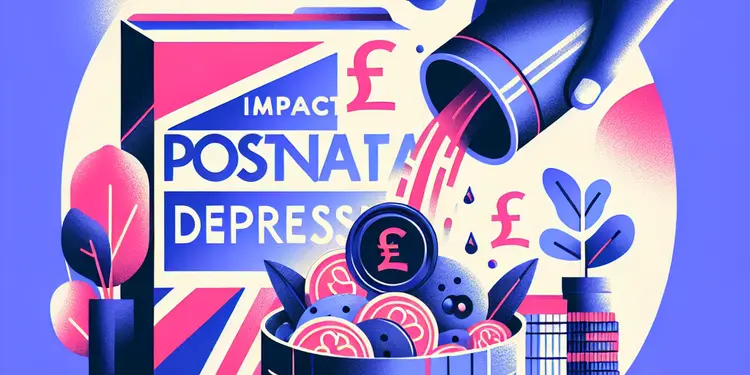
Find Help
More Items From Ergsy search
-
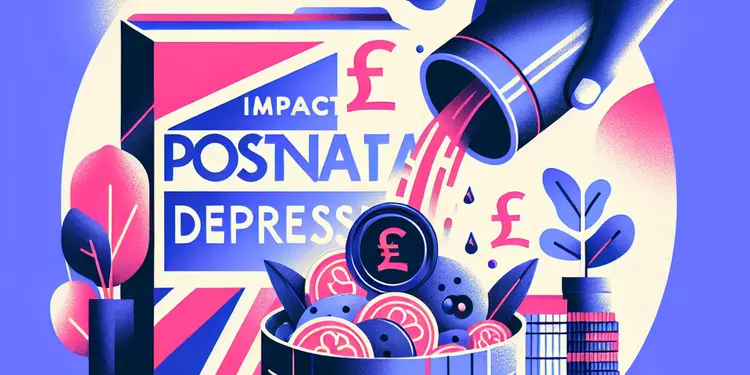
Can diet impact postnatal depression?
Relevance: 100%
-

Postnatal Depression
Relevance: 87%
-
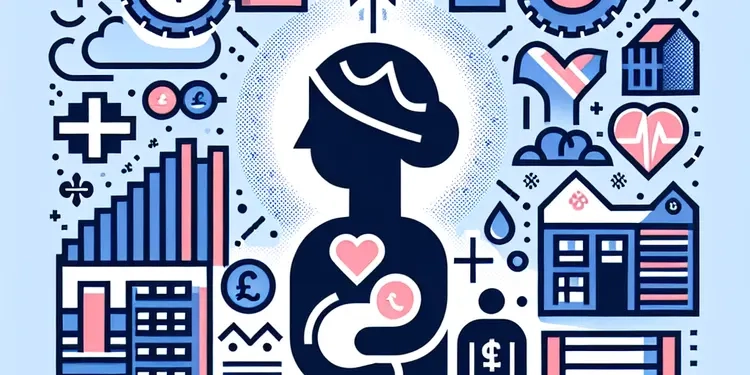
What is postnatal depression?
Relevance: 86%
-
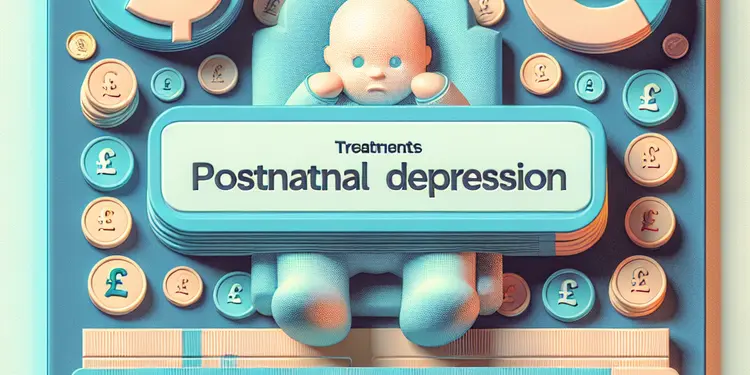
Are there treatments available for postnatal depression?
Relevance: 83%
-

Is postnatal depression preventable?
Relevance: 82%
-

Is postnatal depression a long-term condition?
Relevance: 80%
-
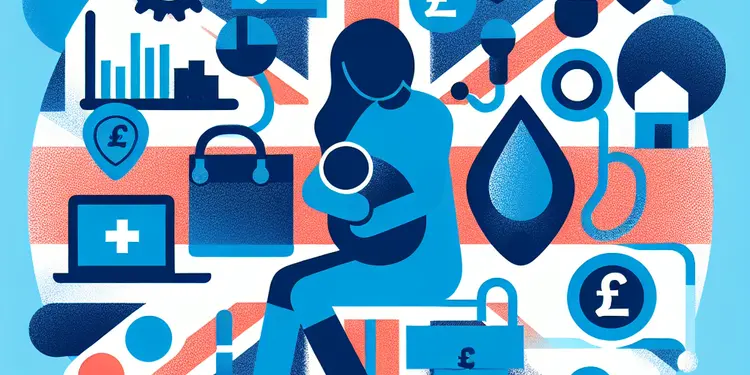
How is postnatal depression diagnosed?
Relevance: 80%
-

What causes postnatal depression?
Relevance: 80%
-

Postnatal Depression - Leanne's Story
Relevance: 79%
-

What are the symptoms of postnatal depression?
Relevance: 79%
-
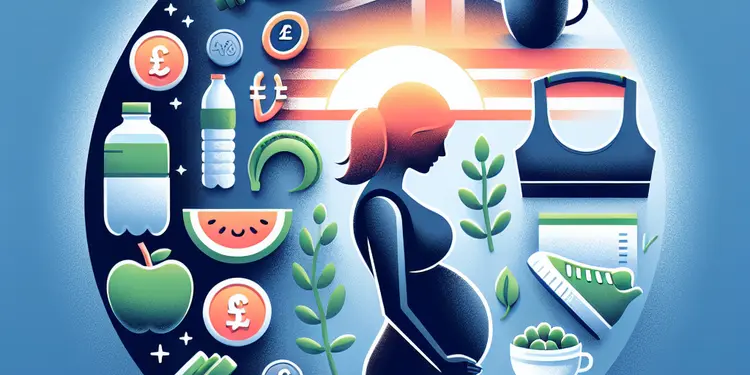
Can lifestyle changes help with postnatal depression?
Relevance: 78%
-
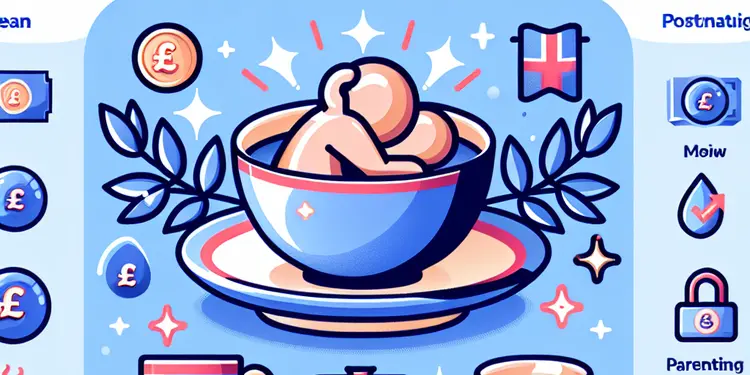
Are there support groups for postnatal depression?
Relevance: 77%
-

Can fathers experience postnatal depression?
Relevance: 77%
-

Is medication necessary for treating postnatal depression?
Relevance: 76%
-

How do I know if I have postnatal depression? | NHS
Relevance: 75%
-

Can postnatal depression affect subsequent pregnancies?
Relevance: 74%
-

Can postnatal depression recur after treatment?
Relevance: 74%
-
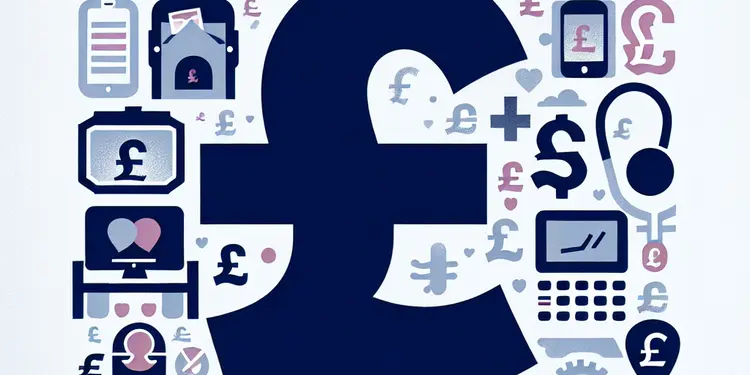
What should I do if I suspect I have postnatal depression?
Relevance: 73%
-
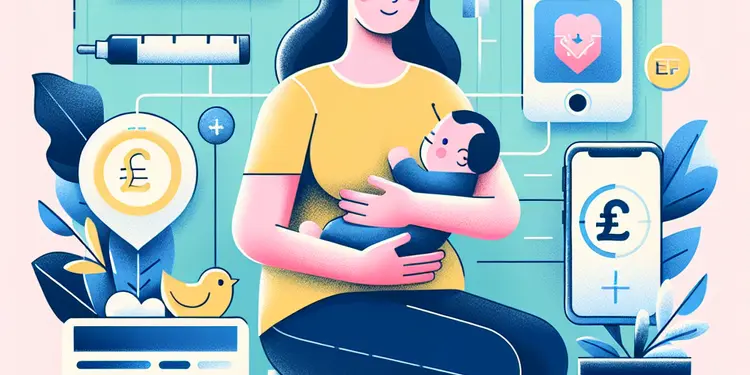
How is postnatal depression different from the 'baby blues'?
Relevance: 72%
-

Should someone with postnatal depression seek professional help?
Relevance: 71%
-
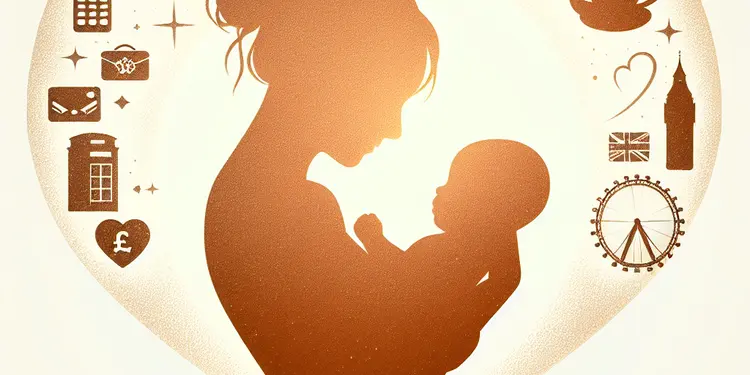
How does postnatal depression affect bonding with the baby?
Relevance: 71%
-
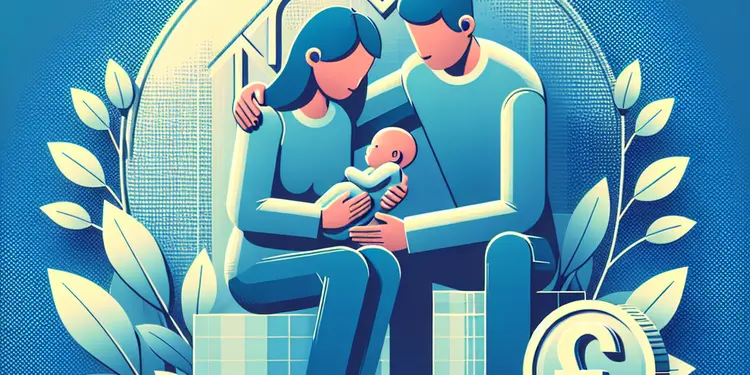
How can family members support someone with postnatal depression?
Relevance: 65%
-

How soon after childbirth can postnatal depression occur?
Relevance: 49%
-

Treating anxiety and depression - www.slam.nhs.uk
Relevance: 37%
-
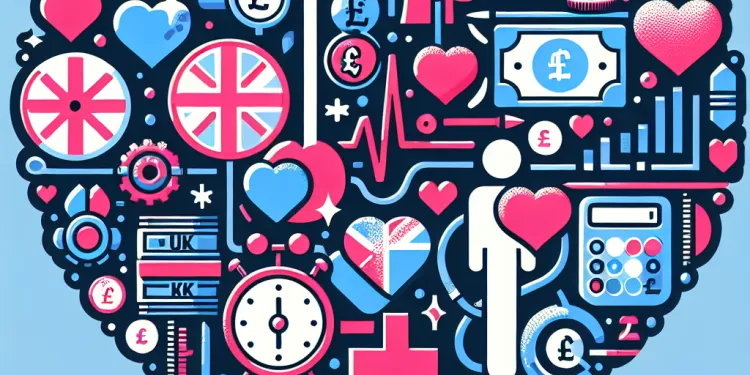
What are the signs that my relationship is making me depressed?
Relevance: 35%
-

Are there any self-care strategies to cope with relationship-induced depression?
Relevance: 34%
-

I couldn't celebrate Hibs beating Hearts because I was that depressed
Relevance: 34%
-
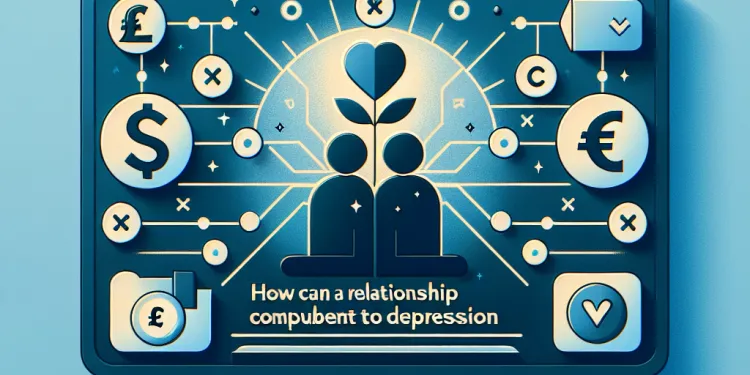
How can a relationship contribute to depression?
Relevance: 33%
-
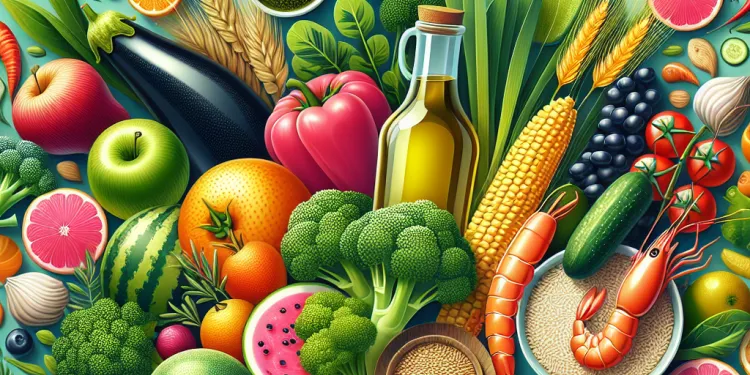
Understanding the Benefits of the Mediterranean Diet
Relevance: 32%
-

Clinical depression: Lawrence's story | NHS
Relevance: 32%
-

Can physical symptoms be linked to relationship-induced depression?
Relevance: 31%
-
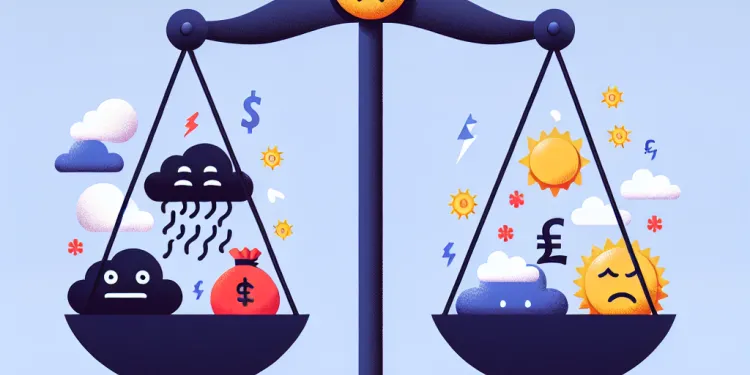
What role do unhealthy dynamics play in causing depression?
Relevance: 31%
-

7 Signs Your Relationship is Making You Depressed
Relevance: 30%
-

What is the DASH diet?
Relevance: 30%
-

Postpartum Health: Mother and Baby
Relevance: 30%
-

What should I do if my partner dismisses my feelings of depression?
Relevance: 29%
-
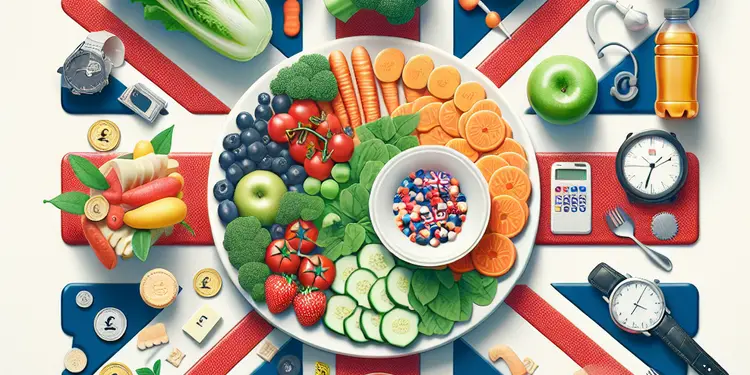
Can a low-fat diet be unhealthy?
Relevance: 28%
-

Can diet affect psoriasis?
Relevance: 28%
-
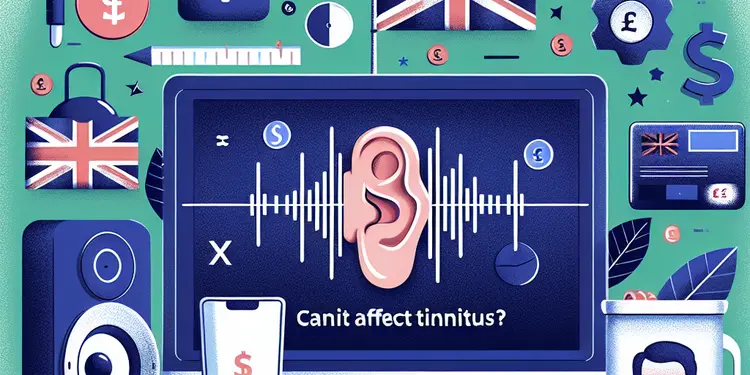
Can diet affect tinnitus?
Relevance: 28%
-
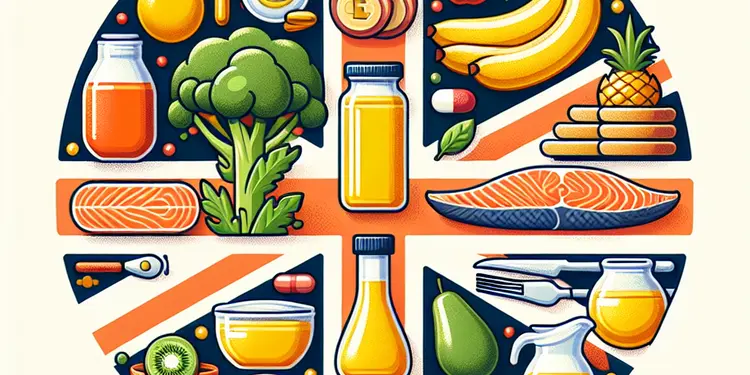
What is the omega-6 to omega-3 ratio in diets?
Relevance: 28%
The Link Between Diet and Mental Health
Postnatal depression, affecting many new mothers, is a complex condition with a range of causes. It is increasingly recognised that diet plays a significant role in influencing mental health conditions, including postnatal depression. Nutritional intake can impact mood regulation, stress response, and overall mental health, making it an important factor to consider when addressing postnatal depression.
Essential Nutrients for Mental Well-being
A balanced diet rich in essential nutrients can support mental well-being. Omega-3 fatty acids, found in oily fish like salmon and mackerel, are known for their role in brain health. B vitamins, including folate and B12, contribute to neurotransmitter function, which is crucial for mood regulation. Magnesium, available in leafy greens, nuts, and seeds, plays a role in stress reduction and mood stabilization.
The Impact of Processed Foods
Conversely, diets high in processed foods and refined sugars can negatively affect mental health. Such foods may lead to inflammation and oxidative stress, which are linked to increased risks of depression. Studies suggest that women who consume diets high in processed and sugary foods may experience heightened symptoms of postnatal depression.
Understanding Gut Health and Its Influence
Emerging research highlights the importance of gut health in mental well-being. The gut-brain axis shows that gut microbiota can influence mood and behaviour. Fermented foods like yoghurt and kefir, rich in probiotics, can help maintain a healthy gut, potentially reducing symptoms of depression. A fibre-rich diet, with plenty of fruits, vegetables, and whole grains, supports gut health by promoting beneficial bacteria.
Socioeconomic Factors and Dietary Choices
Dietary choices are often influenced by socioeconomic factors. Access to fresh, nutritious foods may be limited for some new mothers, impacting their ability to maintain a balanced diet. Public health initiatives in the UK have aimed to improve access to healthy foods for all, recognising the link between diet and mental health. Ensuring equitable access to nutritious foods is crucial in supporting mental well-being for new mothers.
Practical Tips for New Mothers
For new mothers, incorporating a variety of nutrient-rich foods can support their mental health. Planning meals that include a balance of protein, healthy fats, and carbohydrates can help stabilise mood and energy levels. Drinking plenty of water and limiting caffeine intake can also benefit overall well-being. Seeking support from healthcare professionals, including dietitians, can provide personalised guidance for maintaining a healthy diet postnatally.
Conclusion
While diet alone may not fully prevent or treat postnatal depression, it can play a vital role in managing symptoms and supporting recovery. By understanding the connection between nutrition and mental health, new mothers in the UK can make informed dietary choices to boost their well-being during the postnatal period. As research continues, the importance of diet in mental health becomes increasingly clear, highlighting the need for continued public health efforts to support new mothers.
The Link Between Diet and Mental Health
After having a baby, some mothers feel very sad or anxious. This is called postnatal depression. One thing that can affect how we feel is what we eat. Eating certain foods can help us feel better and less stressed. So, it's important to think about our diet when looking at postnatal depression.
Essential Nutrients for Mental Well-being
Eating a healthy diet can help us feel good. Foods like oily fish (for example, salmon and mackerel) have Omega-3 fatty acids, which help our brain. B vitamins, like the ones in leafy greens, help with mood too. Magnesium, found in nuts and seeds, can help us feel less stressed.
The Impact of Processed Foods
Eating a lot of processed foods, like chips and sweets, can make us feel worse. These foods can cause problems in our bodies that might lead to feeling more depressed. Studies show that eating too much of these foods can make postnatal depression worse for some women.
Understanding Gut Health and Its Influence
Our tummy health is linked to how we feel. Good bacteria in our tummies can help us feel better. Foods like yoghurt and kefir have good bacteria. Eating fruits, vegetables, and whole grains helps our tummy stay healthy and can lower signs of depression.
Socioeconomic Factors and Dietary Choices
Not everyone has easy access to healthy foods. Sometimes, it’s hard for mothers to get fresh fruits and vegetables. In the UK, there are efforts to help everyone get healthy food. Having access to healthy food can help new mothers feel better.
Practical Tips for New Mothers
New mothers can help their mental health by eating a mix of different healthy foods. Plan meals with proteins, healthy fats, and carbs. Drink lots of water and try to cut down on drinks with caffeine. Talking to a doctor or dietitian can give new mothers more advice on eating well.
Conclusion
A healthy diet helps manage postnatal depression but may not cure it alone. Understanding how food affects feelings can help new mothers make choices that improve their mood. As studies continue, we learn more about how important diet is for mental health. This shows why it’s crucial to ensure all mothers have access to healthy foods.
Frequently Asked Questions
What is postnatal depression?
Postnatal depression is a type of mood disorder that can affect women after childbirth, characterized by feelings of extreme sadness, anxiety, and exhaustion.
Can diet influence postnatal depression?
Yes, diet can influence postnatal depression. Nutrition affects brain chemistry and hormonal balance, which can impact mood and emotions.
What nutrients are important for mental health postnatally?
Nutrients such as omega-3 fatty acids, vitamins B6 and B12, vitamin D, iron, selenium, and zinc are important for mental health postnatally.
How does omega-3 fatty acid intake affect postnatal depression?
Omega-3 fatty acids, particularly EPA and DHA found in fish, have been shown to help reduce symptoms of depression, possibly by affecting brain cell membranes and neurotransmitters.
Can a lack of vitamin D contribute to postnatal depression?
Yes, a deficiency in vitamin D has been linked to increased risk of depression. Vitamin D plays a role in brain health and mood regulation.
Are there specific foods that can help manage postnatal depression?
Foods rich in omega-3 fatty acids (like fatty fish), those high in vitamins B and D (like eggs and fortified foods), and foods with magnesium (like leafy greens) can help manage postnatal depression.
How does iron deficiency affect postnatal depression?
Iron deficiency can lead to fatigue and mood disturbances. Ensuring adequate iron intake postpartum can help support energy levels and mood stabilization.
What role does gut health play in postnatal depression?
Gut health is linked to brain health through the gut-brain axis. A healthy gut microbiome can influence mood and emotional states, potentially impacting postnatal depression.
Can sugar consumption affect postnatal depression?
High sugar consumption can lead to energy spikes and crashes, and has been associated with inflammation and mood swings, which can worsen symptoms of depression.
Why is hydration important for postnatal mental health?
Dehydration can affect energy levels, concentration, and mood. Adequate hydration is essential for overall health, including mental well-being.
How do probiotics influence postnatal mental health?
Probiotics support a healthy gut microbiome, which can impact serotonin production and mood regulation, potentially improving symptoms of depression.
Are there any supplements recommended for postnatal depression?
Some supplements that may help include omega-3 fatty acids, vitamin D, B-complex vitamins, and probiotics, but it is important to consult with a healthcare provider before starting any supplements.
What is the impact of caffeine on postnatal depression?
Moderate caffeine consumption is usually safe, but excessive caffeine can lead to anxiety, sleep disturbances, and mood swings, which may exacerbate depression.
How can meal planning help manage postnatal depression?
Meal planning can ensure a balanced intake of nutrients and help manage stress related to meal preparation, contributing to better mental health.
Why is protein important in the diet for managing postnatal depression?
Protein is essential for neurotransmitter production, including serotonin and dopamine, which regulate mood and help manage depression symptoms.
Can developing healthy eating habits postpartum aid in recovery from postnatal depression?
Yes, healthy eating habits can provide essential nutrients that support brain health and emotional well-being, aiding recovery from postnatal depression.
What foods should be avoided to help manage postnatal depression?
Foods to avoid include those high in sugar, trans fats, and processed ingredients, as they can negatively impact mood and increase inflammation.
How does vitamin B12 intake affect postnatal depression?
Vitamin B12 is vital for the production of serotonin and other neurotransmitters. A deficiency can lead to mood changes and depression.
Can a balanced diet alone treat postnatal depression?
While a balanced diet can support overall health and improve mood, postnatal depression often requires a comprehensive treatment approach, including therapy and possibly medication.
Should individuals with postnatal depression seek professional nutritional advice?
Yes, consulting with a registered dietitian or nutritionist can provide personalized advice and ensure all nutritional needs are met to help manage postnatal depression.
What is feeling sad after having a baby?
Sometimes, after a baby is born, new mums can feel really sad. This feeling is called "postnatal depression." It’s okay to feel this way, and you are not alone.
Here are some ways to feel better:
- Talk to someone you trust, like a friend or family member.
- Speak to a doctor or nurse; they can help you.
- Join a support group for new mums.
- Rest as much as you can and ask for help at home.
Remember, it’s important to take care of yourself too. You are doing a great job!
After having a baby, some mums can feel very sad, worried, and really tired. This is called postnatal depression. It is a type of sickness that affects how they feel.
Can the food you eat affect feeling sad after having a baby?
Yes, what you eat can change how you feel after having a baby. Food can change how your brain works and your hormones, which can change your mood and feelings.
If you find it hard to read, try listening to the words instead. You can also use apps that read text out loud for you.
What foods are good for feeling better after having a baby?
Some nutrients are important for mental health after having a baby. These nutrients are:
- Omega-3 fatty acids
- Vitamins B6 and B12
- Vitamin D
- Iron
- Selenium
- Zinc
These nutrients help keep your brain and body healthy. Eating foods with these nutrients is good for you. Using a simple list or picture can help you remember them. You can also talk to a doctor or a nutritionist if you need help.
How do omega-3 fats help with feeling sad after having a baby?
Omega-3 fats are good for your brain. You can find them in fish like salmon, or in special pills. Eating these fats can help moms feel less sad after having a baby.
If you are feeling sad, talk to someone who can help. Uplifting music, drawing, or writing down your feelings can support you too.
Omega-3 fats are good for you. They are found in fish. They might help people feel less sad. These fats can help the brain work better by helping the parts of brain cells and the things that send signals in the brain.
Can not enough vitamin D make new mums feel sad?
Yes, not having enough vitamin D can make you feel sad or depressed. Vitamin D helps your brain stay healthy and keeps your mood happy.
Can some foods help with feeling sad after having a baby?
Some foods can help if you feel sad after having a baby. Eating fish, eggs, and leafy green vegetables is good. These foods have things like omega-3, vitamins B and D, and magnesium. These can help you feel better.
Using a list or drawing pictures of these foods can also help you remember them. Eating these healthy foods, along with talking to someone about how you feel, can be helpful. Talking to a doctor or a friend is a good idea too.
How does low iron make new moms feel sad?
Some new moms feel very sad after their baby is born. This can be called postnatal depression.
Low iron in their body can make this sadness worse. Iron helps keep our body strong and our brain working well.
When moms do not have enough iron, they might feel tired, weak, and very sad. This can make it hard for them to take care of themselves and their baby.
Eating foods with lots of iron, like meat, beans, and spinach, can help. Sometimes, doctors give iron pills to help too.
If you or someone you know feels very sad after having a baby, talking to a doctor can help. They can check iron levels and give support.
Low iron can make you feel tired and upset. Eating enough iron after having a baby can help you feel better and have more energy.
How does your tummy health affect feeling sad after having a baby?
Your tummy and brain are connected. This is called the tummy-brain link. When your tummy is healthy, it can help you feel happy and calm. It might also help new moms feel better after having a baby.
If you want to know more, you can use tools like pictures, videos, or simple books to learn about it. Ask someone for help if you need it!
Does eating sugar change how moms feel after having a baby?
Eating too much sugar can make your energy go up and down quickly. It can also cause swelling inside your body and make your mood change a lot, which can make you feel more sad or upset.
Why is drinking water important for new moms' mental health?
Drinking enough water is very important for new moms. It helps them feel good and think clearly.
When a new mom drinks enough water, it can help her feel less tired and more awake. Water is good for the brain and can help with mood.
Here are some tips to help new moms drink enough water:
- Have a water bottle nearby to remind them to drink.
- Use a phone app to track how much water they drink.
- Set reminders to drink water throughout the day.
Staying hydrated is one simple way to support mental health for new moms.
When you do not drink enough water, you might feel tired or moody. It can be hard to focus too. Drinking enough water is important to keep you healthy and happy.
How do probiotics help mental health after having a baby?
Having a baby can be a big change. It might make some people feel sad or worried. These feelings are called mental health issues.
Probiotics are tiny living things that are good for your tummy. They can be found in yogurt and some other foods.
Probiotics might help people feel better after having a baby. They can help the tummy be healthy, and this might also help the mind feel better.
If you are feeling sad after having a baby, talk to a doctor or a nurse. They can help and tell you more about probiotics.
Tools like visual reminders, like pictures of food with probiotics, can help understand and remember this information.
Probiotics help keep your tummy healthy. They can also help make you feel happier and less sad. This is because they help your tummy make something called serotonin, which helps you feel good.
Can vitamins help if you feel sad after having a baby?
Some vitamins and supplements that might be helpful are omega-3, vitamin D, B vitamins, and probiotics. But it’s very important to talk to a doctor or nurse before you start taking any of these.
How does caffeine affect sadness after having a baby?
Caffeine is in drinks like coffee, tea, and cola. It can make you feel awake.
Some people feel sad after having a baby. This is called postnatal depression.
We need to know if caffeine makes this sadness better or worse.
Tools that can help understand more:
- Talk to a doctor or nurse.
- Read simple books about feelings and babies.
- Use apps with easy explanations and pictures.
Having a little bit of caffeine is okay for most people. But if you have too much, it can make you feel worried, make it hard to sleep, and change your mood a lot. This can make you feel more sad if you are already feeling down.
Here are some tips to help:
- Try drinking less caffeine, like less coffee or tea.
- Drink water or juice instead.
- Try relaxing activities like deep breathing or drawing.
- Talk to someone you trust if you are feeling sad or worried.
How can planning meals help with feeling sad after having a baby?
Planning meals can make things easier for new moms who feel sad after having a baby. Here’s how:
- Less Stress: Knowing what to eat each day means less time worrying about food.
- Healthy Eating: Planning meals helps choose healthy foods, which is good for your body and mind.
- Saving Time: When meals are planned, shopping and cooking take less time.
If you need help, ask a friend or family to plan with you. Use a simple calendar or app to keep track of meals. Remember, it’s okay to ask for help!
Planning your meals can help you eat healthy food. It can also make cooking less stressful and can help you feel happier.
Why Do We Need Protein to Help After Having a Baby?
Our bodies need protein to stay healthy and strong. After having a baby, some moms feel really sad, which is called postnatal depression.
Eating foods with protein can help because:
- Protein helps your brain work better.
- It makes you feel more energetic.
- Eating healthy can make you feel happier.
Some good protein foods are:
- Eggs
- Chicken
- Beans
- Fish
- Nuts
If you are feeling really sad, talk to a doctor, a nurse, or a friend. They can help you feel better. You can also try using a phone app that helps you relax and feel calm.
Proteins are very important for making chemicals in the brain. These chemicals, called serotonin and dopamine, help us feel happy and control feelings of sadness.
Can eating healthy after having a baby help with feeling better if you feel very sad?
After you have a baby, eating good food can help you feel stronger and happier. It might help you if you feel very sad, which some new parents do. Here are some tips:
- Eat fruits and vegetables every day.
- Drink plenty of water.
- Try to eat at the same time each day to get into a routine.
- Ask for help from friends or family if you find it hard to prepare meals.
- Talk to a doctor if you feel very sad for a long time.
Yes, eating healthy foods can help your brain feel better and support your emotions. This can help you get better from postnatal depression.
What foods should you stay away from to help if you feel sad after having a baby?
Try not to eat foods with lots of sugar, bad fats, or unnatural ingredients. These can make you feel unhappy and can make your body hurt inside.
How does vitamin B12 affect feeling sad after having a baby?
Vitamin B12 helps make important chemicals in the brain. These chemicals help with mood and feelings. If you don’t have enough Vitamin B12, it can make you feel sad or grumpy.
Can healthy food help make you feel better after having a baby?
Eating healthy food can help you feel good. But when someone has a sad feeling after having a baby, called postnatal depression, they might need more help. This can include talking to a doctor or therapist and maybe taking medicine.
Should people with postnatal depression get help with their diet?
If you feel sad or worried after having a baby, it might help to talk to someone about what you eat. Eating the right food can make you feel better.
Talking to a health expert like a doctor or nutritionist can help. They can tell you what foods are good for your body and mind.
It's also important to talk to friends or family. They can support you too.
If you have trouble reading, ask someone you trust to read it with you or use apps that read text out loud.
Yes, talking to a diet expert can help. They can give you advice just for you. This can make sure you eat the right foods to help with feeling sad after having a baby.
Useful Links
This website offers general information and is not a substitute for professional advice.
Always seek guidance from qualified professionals.
If you have any medical concerns or need urgent help, contact a healthcare professional or emergency services immediately.
Some of this content was generated with AI assistance. We’ve done our best to keep it accurate, helpful, and human-friendly.
- Ergsy carfully checks the information in the videos we provide here.
- Videos shown by Youtube after a video has completed, have NOT been reviewed by ERGSY.
- To view, click the arrow in centre of video.
- Most of the videos you find here will have subtitles and/or closed captions available.
- You may need to turn these on, and choose your preferred language.
- Go to the video you'd like to watch.
- If closed captions (CC) are available, settings will be visible on the bottom right of the video player.
- To turn on Captions, click settings .
- To turn off Captions, click settings again.
More Items From Ergsy search
-

Can diet impact postnatal depression?
Relevance: 100%
-

Postnatal Depression
Relevance: 87%
-

What is postnatal depression?
Relevance: 86%
-

Are there treatments available for postnatal depression?
Relevance: 83%
-

Is postnatal depression preventable?
Relevance: 82%
-

Is postnatal depression a long-term condition?
Relevance: 80%
-

How is postnatal depression diagnosed?
Relevance: 80%
-

What causes postnatal depression?
Relevance: 80%
-

Postnatal Depression - Leanne's Story
Relevance: 79%
-

What are the symptoms of postnatal depression?
Relevance: 79%
-

Can lifestyle changes help with postnatal depression?
Relevance: 78%
-

Are there support groups for postnatal depression?
Relevance: 77%
-

Can fathers experience postnatal depression?
Relevance: 77%
-

Is medication necessary for treating postnatal depression?
Relevance: 76%
-

How do I know if I have postnatal depression? | NHS
Relevance: 75%
-

Can postnatal depression affect subsequent pregnancies?
Relevance: 74%
-

Can postnatal depression recur after treatment?
Relevance: 74%
-

What should I do if I suspect I have postnatal depression?
Relevance: 73%
-

How is postnatal depression different from the 'baby blues'?
Relevance: 72%
-

Should someone with postnatal depression seek professional help?
Relevance: 71%
-

How does postnatal depression affect bonding with the baby?
Relevance: 71%
-

How can family members support someone with postnatal depression?
Relevance: 65%
-

How soon after childbirth can postnatal depression occur?
Relevance: 49%
-

Treating anxiety and depression - www.slam.nhs.uk
Relevance: 37%
-

What are the signs that my relationship is making me depressed?
Relevance: 35%
-

Are there any self-care strategies to cope with relationship-induced depression?
Relevance: 34%
-

I couldn't celebrate Hibs beating Hearts because I was that depressed
Relevance: 34%
-

How can a relationship contribute to depression?
Relevance: 33%
-

Understanding the Benefits of the Mediterranean Diet
Relevance: 32%
-

Clinical depression: Lawrence's story | NHS
Relevance: 32%
-

Can physical symptoms be linked to relationship-induced depression?
Relevance: 31%
-

What role do unhealthy dynamics play in causing depression?
Relevance: 31%
-

7 Signs Your Relationship is Making You Depressed
Relevance: 30%
-

What is the DASH diet?
Relevance: 30%
-

Postpartum Health: Mother and Baby
Relevance: 30%
-

What should I do if my partner dismisses my feelings of depression?
Relevance: 29%
-

Can a low-fat diet be unhealthy?
Relevance: 28%
-

Can diet affect psoriasis?
Relevance: 28%
-

Can diet affect tinnitus?
Relevance: 28%
-

What is the omega-6 to omega-3 ratio in diets?
Relevance: 28%


